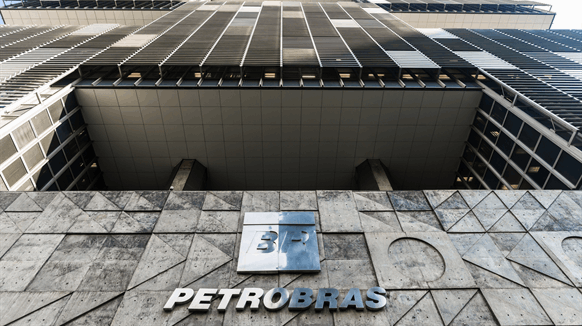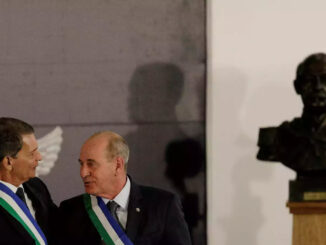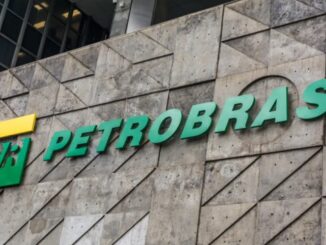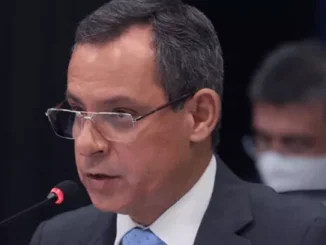
Petrobras’s shareholders appointed Jose Mauro Coelho as a board member on Wednesday, a key step for the former energy ministry official to become the chief executive officer and end a tumultuous leadership transition.
The board of directors at Petroleo Brasileiro SA, as the state-controlled oil producer is known, will hold a separate vote to name Coelho as CEO on Thursday. It is expected to be a formality because the government, which controls the board, nominated him as a candidate. Minority shareholders scored a victory by electing four members to the board for the first time, up from three, in a meeting that lasted more than six hours.
Shareholders also elected Marcio Andrade Weber, a civil engineer from the Rio Grande do Sul State University, as chairman. Weber previously worked at Petrobras and was already a board member.
Coelho will be taking control of Petrobras at a time high fuel prices have turned it into a political punching bag ahead of elections in October. He will be the third Petrobras CEO under President Jair Bolsonaro, who expects him to do a better job at diffusing public frustration over fuel prices than his predecessors. Bolsonaro has said he wants someone more “professional” at Petrobras who does a better job at communicating its fuel price policies. Petrobras tracks international prices while shielding consumers from short-term volatility.
He wasn’t Bolsonaro’s first choice. The far-right president had previously tapped a well-known energy consultant for the role, who wound up backing out due to potential conflicts of interest.
Coelho will replace Joaquim Silva e Luna, a general who had been sparring with Bolsonaro over high fuel prices that are a source of frustration for voters in an election year. The incoming CEO has a history of defending market-based fuel prices and fiscal restraint by the government. Stabilization in oil prices would make his job easier.
“The fuel-price noise has diminished, and the main risk going forward is if oil prices keep climbing,” said Marcos Peixoto, a Sao Paulo-based portfolio manager at XP Asset Management. “All the names appointed by the government are technical and major changes are unlikely.”
As CEO, Coelho will need to navigate the conflicting priorities of Bolsonaro, who is concerned about the political fallout from $100 oil, and investors who want the company to continue charging market-based fuel prices and paying robust dividends. Investors also want to company to continue divesting billions of dollars in assets to the giant pre-salt fields that deliver the most revenue.
Coelho’s previous two predecessors were fired amid public disputes with Bolsonaro over fuel prices. Luna has said he came under political pressure to contain gasoline and diesel prices leading up to his ouster. Petrobras has underperformed peers this year on concern that it would subsidize fuel.
While Coelho has defended international fuel price parity in the past and is unlikely to change Petrobras’s current policy, it is unclear what will happen to the company after the October elections. Bolsonaro has expressed frustration with international prices, and front-runner Luiz Inacio Lula da Silva, a former president, has been blaming Bolsonaro for pain at the pump and suggested the company charge below-market prices.
Proposals from Petrobras to strengthen governance, which included the need for feedback from special committees before implementing any meaningful changes to the company´s mission, were postponed because they weren’t properly submitted, according to the energy ministry.
Source: Rigzone.com



